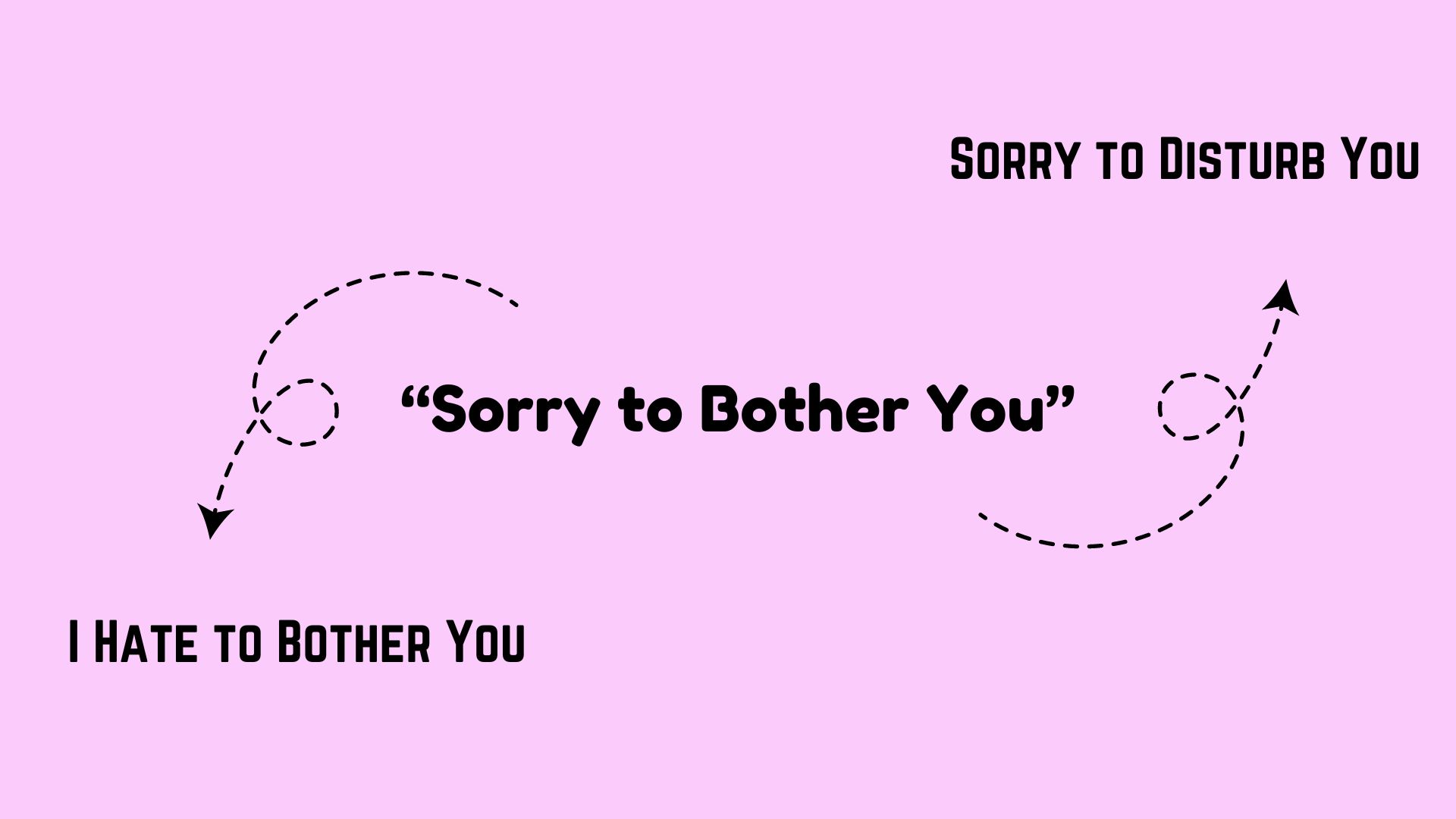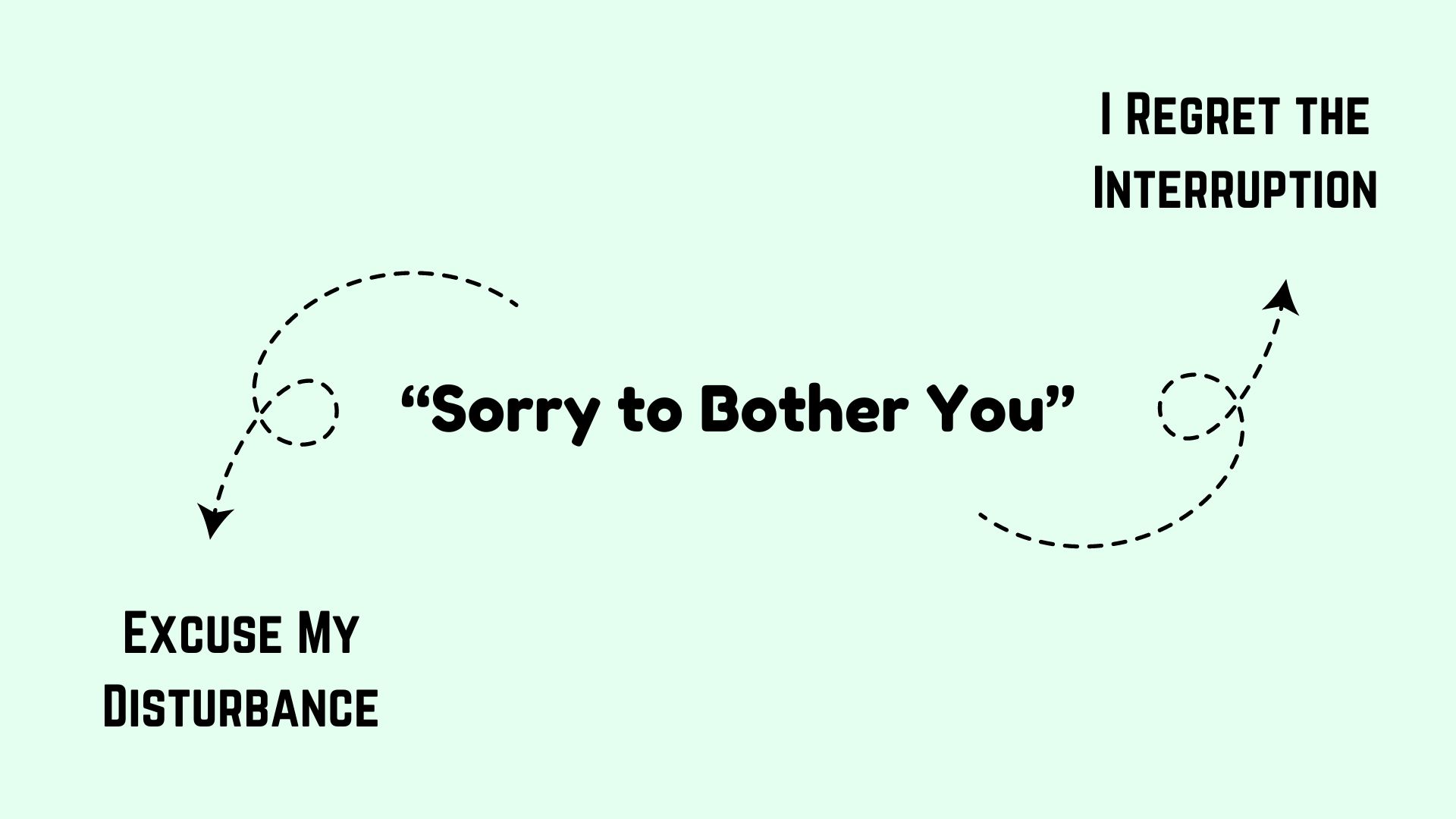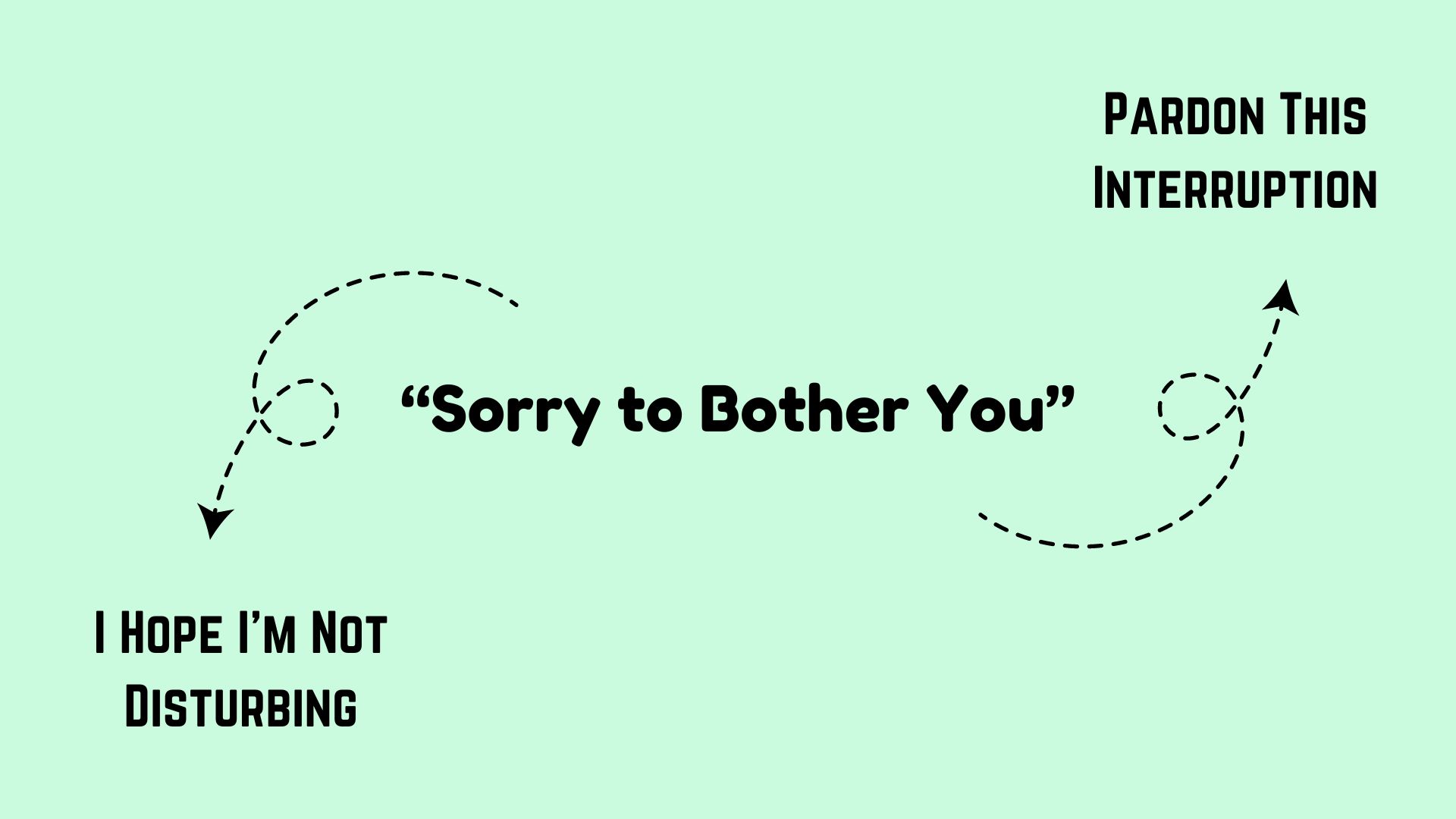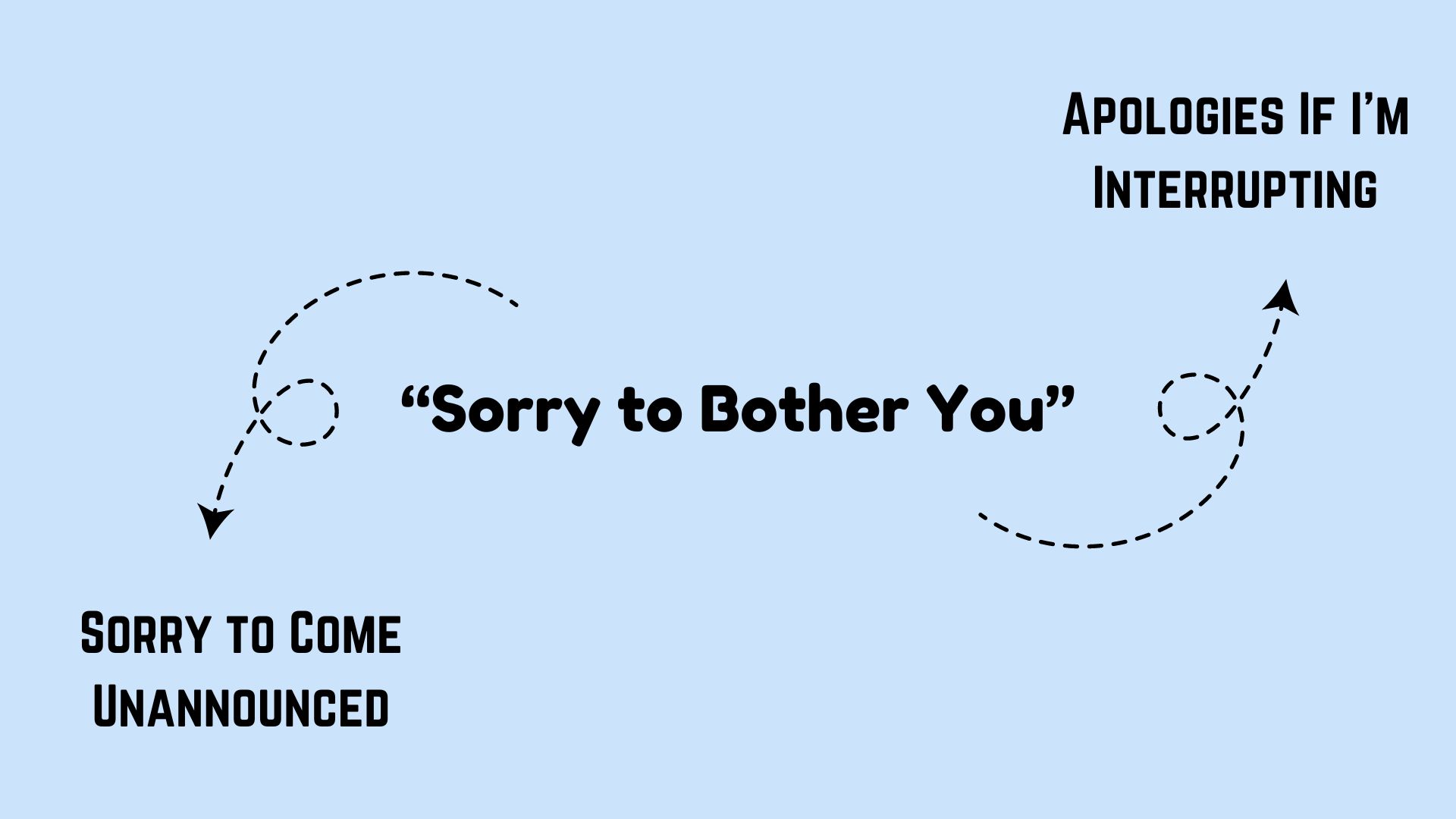Apologizing for a potential interruption in a professional setting is crucial for maintaining politeness and respect. Here are 24 ways to say “Sorry to bother you” in a professional context, each with an example and a specific use case to ensure you communicate tactfully.
1. Apologies for the Interruption
Example: “Apologies for the interruption, but I need your input on this report.”
Use Case: Ideal when you need to interrupt someone’s work to seek necessary information or feedback.
2. Sorry to Disturb You
Example: “Sorry to disturb you, but could we discuss your email from earlier?”
Use Case: Useful when you need clarification or further discussion about a communication received.
3. I Hate to Bother You
Example: “I hate to bother you, but your approval is needed on this document.”
Use Case: When someone’s approval or decision is critical and urgent.
4. Excuse the Intrusion
Example: “Excuse the intrusion, I was hoping to get a moment of your time.”
Use Case: When you need to speak with someone who is currently busy or in a meeting.
5. Pardon My Interruption
Example: “Pardon my interruption, do you have a minute to review this error?”
Use Case: When you need immediate attention to address a specific issue or problem.

6. I’m Sorry to Trouble You
Example: “I’m sorry to trouble you, but can you help me understand this data?”
Use Case: When seeking assistance or explanation on a complex topic.
7. Forgive My Intrusion
Example: “Forgive my intrusion, could we quickly verify these numbers?”
Use Case: When you need to confirm or double-check information urgently.
8. Apologies for Disturbing You
Example: “Apologies for disturbing you, have you got a moment to discuss our project timeline?”
Use Case: Suitable when you need to discuss or adjust timelines and schedules.
9. I Regret the Interruption
Example: “I regret the interruption, but I require some details from you.”
Use Case: When the information you need is necessary to proceed with your tasks.
10. Sorry to Break In
Example: “Sorry to break in, but your session is about to start.”
Use Case: Useful for alerting someone about upcoming commitments or schedules.

11. Excuse My Disturbance
Example: “Excuse my disturbance, could you assist me with this client issue?”
Use Case: When you need immediate help or intervention in client-related issues.
12. I Apologize for the Inconvenience
Example: “I apologize for the inconvenience, but can we tackle this issue now?”
Use Case: When addressing something that requires prompt action.
13. I’m Sorry for Any Inconvenience
Example: “I’m sorry for any inconvenience, but your feedback is urgently needed.”
Use Case: When feedback is critical to the completion or progress of a project.
14. Sorry for the Unexpected Message
Example: “Sorry for the unexpected message, but I found a discrepancy in our records.”
Use Case: When you discover an error that needs immediate attention.
15. Pardon This Interruption
Example: “Pardon this interruption, but your expertise is required on this matter.”
Use Case: When needing expert advice or input on a specialized subject.

16. I Hope I’m Not Disturbing
Example: “I hope I’m not disturbing, but could you verify this transaction?”
Use Case: When you need confirmation or verification to ensure accuracy.
17. Sorry to Take Your Time
Example: “Sorry to take your time, but can we review this plan together?”
Use Case: When you need to go over plans or documents together for clarity or collaboration.
18. Apologies If I’m Interrupting
Example: “Apologies if I’m interrupting, but your immediate decision is needed.”
Use Case: When a decision from someone is urgently required.
19. I’m Sorry to Catch You at a Bad Time
Example: “I’m sorry to catch you at a bad time, but could we finalize the agreement now?”
Use Case: When finalizing agreements or documents urgently.
20. Sorry to Come Unannounced
Example: “Sorry to come unannounced, but there’s been a change in our meeting schedule.”
Use Case: When you need to inform someone about last-minute changes.

21. Apologies for Any Disturbance
Example: “Apologies for any disturbance, but I need to share this update with you.”
Use Case: When you have updates that could not wait for a scheduled time.
22. Sorry to Pull You Away
Example: “Sorry to pull you away, but this issue needs your attention.”
Use Case: When pulling someone away from their current task is necessary due to pressing issues.
23. I’m Sorry for This Interruption
Example: “I’m sorry for this interruption, but we need to address this error immediately.”
Use Case: When urgent corrective action is required to fix a mistake.
24. Excuse My Urgent Interruption
Example: “Excuse my urgent interruption, but we need your input on this matter right away.”
Use Case: When the matter is urgent and requires immediate input or decision-making.
Each of these phrases allows you to professionally acknowledge that you are interrupting, while also conveying the importance of the interruption. This helps maintain professionalism and respect in your communications.

